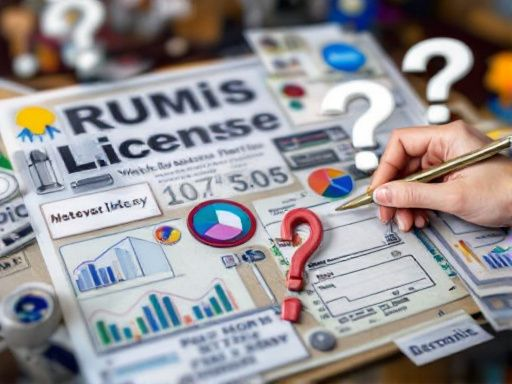Understanding the Basics of Wholesale Licenses and Seller’s Permits
Businesses involved in the sale of goods and services must navigate various licensing requirements to ensure compliance with state and local regulations. Two essential licenses that often cause confusion among entrepreneurs are the wholesale license and the seller’s permit. Understanding the differences between these licenses is crucial for businesses to operate lawfully and avoid potential penalties. In this article, the distinction between wholesale license vs seller’s permit will be clarified, enabling business owners to make informed decisions about their licensing needs.
A wholesale license is a permit that allows businesses to purchase goods in bulk from suppliers and resell them to other businesses or individuals. This license is typically required for companies that engage in wholesale trade, such as distributors, wholesalers, and manufacturers. On the other hand, a seller’s permit is a license that enables businesses to sell taxable goods and services to customers. This permit is usually required for companies that engage in retail trade, such as brick-and-mortar stores, online retailers, and service providers.
While both licenses are essential for businesses, they serve different purposes and have distinct requirements. A wholesale license is necessary for businesses that purchase goods in bulk, whereas a seller’s permit is required for businesses that sell taxable goods and services. Understanding the differences between these licenses is vital for businesses to ensure compliance with licensing regulations and avoid potential fines and penalties. By grasping the concept of wholesale license vs seller’s permit, entrepreneurs can make informed decisions about their licensing needs and maintain a compliant and successful business operation.
Key Differences Between Wholesale Licenses and Seller’s Permits
When it comes to understanding the wholesale license vs seller’s permit, it is essential to recognize the distinct differences between the two. A wholesale license is typically required for businesses that purchase products in bulk and resell them to other businesses or retailers, whereas a seller’s permit is necessary for businesses that sell products directly to consumers. The main differences between wholesale licenses and seller’s permits lie in their application processes, fees, and the types of businesses that require them.
The application process for a wholesale license usually involves providing documentation, such as a business license, tax ID number, and proof of business ownership. In contrast, the application process for a seller’s permit typically requires providing information about the business, including its name, address, and type of products sold. Additionally, the fees associated with wholesale licenses and seller’s permits vary by state and locality.
To illustrate the main differences between wholesale licenses and seller’s permits, consider the following comparison table:
| Licensing Requirement | Wholesale License | Seller’s Permit |
|---|---|---|
| Business Type | Wholesale, resale, or distribution | Retail, food service, or direct sales |
| Application Process | Documentation, tax ID number, and business ownership proof | Business information, including name, address, and products sold |
| Fees | Vary by state and locality | Vary by state and locality |
| Purpose | Allows businesses to purchase products in bulk without paying sales tax | Allows businesses to sell products directly to consumers and collect sales tax |
Understanding the differences between wholesale licenses and seller’s permits is crucial for businesses to ensure compliance with licensing requirements. By recognizing the distinct purposes and application processes of each license, businesses can make informed decisions about which license is right for them. In the context of wholesale license vs seller’s permit, it is essential to consider the specific needs and operations of the business to determine the necessary licensing requirements.
How to Determine Which License is Right for Your Business
Determining whether a wholesale license vs seller’s permit is required for a business depends on several factors, including the type of business, location, and products sold. To ensure compliance with licensing requirements, businesses must carefully evaluate their operations and obtain the necessary licenses.
The first step in determining which license is required is to identify the type of business. Wholesale businesses, for example, typically require a wholesale license, while retail businesses require a seller’s permit. However, some businesses may require both licenses, such as those that sell products to both wholesalers and retailers.
Location is also an important factor in determining which license is required. Different states and local governments have varying licensing requirements, so businesses must research the specific requirements for their location. For example, some states may require a wholesale license for businesses that sell products to out-of-state customers, while others may not.
The products sold by a business can also impact which license is required. Businesses that sell taxable goods, such as clothing or electronics, typically require a seller’s permit, while those that sell non-taxable goods, such as food or prescription medications, may not. However, some products, such as tobacco or liquor, may require special licenses or permits.
To determine which license is right for a business, the following steps can be taken:
1. Identify the type of business and products sold.
2. Research the licensing requirements for the business location.
3. Determine if any special licenses or permits are required for specific products.
4. Apply for the necessary licenses and permits.
5. Ensure compliance with all licensing requirements and regulations.
By following these steps, businesses can ensure they have the necessary licenses and permits to operate legally and avoid any potential fines or penalties. Understanding the differences between a wholesale license vs seller’s permit is crucial in making an informed decision and maintaining compliance with licensing requirements.
Wholesale License Requirements and Benefits
Businesses that purchase products in bulk and resell them to other businesses or individuals require a wholesale license. This license is essential for companies that operate in the wholesale industry, as it enables them to purchase products without paying sales tax. In the context of wholesale license vs seller’s permit, understanding the requirements and benefits of a wholesale license is crucial for businesses to ensure compliance and optimize their operations.
To obtain a wholesale license, businesses typically need to provide documentation, such as a business license, tax ID number, and proof of business ownership. The application process and fees associated with obtaining a wholesale license vary by state and locality. Businesses must also meet specific requirements, such as minimum purchase thresholds and resale certificates, to qualify for a wholesale license.
The benefits of having a wholesale license are numerous. For instance, businesses with a wholesale license can purchase products at discounted rates, which can lead to increased profit margins. Additionally, a wholesale license enables businesses to build relationships with suppliers and manufacturers, which can result in better pricing, improved product quality, and increased availability. In the wholesale license vs seller’s permit debate, having a wholesale license can provide businesses with a competitive edge in the market.
On the other hand, not having a wholesale license can result in significant consequences, including fines, penalties, and even business closure. Businesses that operate without a wholesale license may be required to pay sales tax on purchases, which can lead to increased costs and reduced profit margins. Furthermore, suppliers and manufacturers may refuse to do business with companies that do not have a wholesale license, which can limit access to products and hinder business growth.
In summary, a wholesale license is a critical component of a business’s operations, particularly in the context of wholesale license vs seller’s permit. By understanding the requirements and benefits of a wholesale license, businesses can ensure compliance, optimize their operations, and gain a competitive edge in the market. As businesses navigate the complexities of licensing requirements, it is essential to prioritize obtaining a wholesale license to avoid the consequences of non-compliance and capitalize on the benefits of having one.
Seller’s Permit Requirements and Benefits
A seller’s permit is a crucial license for businesses that sell taxable goods or services. It is typically required for companies that engage in retail sales, and it allows them to collect sales tax from customers. In the context of wholesale license vs seller’s permit, understanding the requirements and benefits of a seller’s permit is essential for businesses to ensure compliance with tax laws and regulations.
To obtain a seller’s permit, businesses typically need to provide documentation, such as a business license, tax ID number, and proof of business ownership. The application process usually involves submitting an application form and paying a fee, which varies depending on the state or locality. Once approved, the seller’s permit is typically valid for a specific period, and businesses must renew it periodically.
The benefits of having a seller’s permit are numerous. It allows businesses to collect sales tax from customers, which is then remitted to the state or locality. This helps businesses avoid penalties and fines associated with failing to collect sales tax. Additionally, having a seller’s permit can help businesses establish credibility with customers and suppliers, as it demonstrates compliance with tax laws and regulations.
In contrast to a wholesale license, a seller’s permit is typically required for businesses that engage in retail sales. While a wholesale license is necessary for businesses that purchase goods or services for resale, a seller’s permit is required for businesses that sell taxable goods or services directly to consumers. Understanding the differences between these two licenses is essential for businesses to ensure compliance with licensing requirements and avoid penalties.
In the wholesale license vs seller’s permit debate, it is clear that both licenses are essential for businesses to operate lawfully. By understanding the requirements and benefits of a seller’s permit, businesses can ensure compliance with tax laws and regulations, establish credibility with customers and suppliers, and avoid penalties and fines associated with non-compliance.
Common Misconceptions About Wholesale Licenses and Seller’s Permits
Despite the importance of understanding the wholesale license vs seller’s permit, many businesses often fall prey to misconceptions about these licenses. One common misconception is that wholesale licenses and seller’s permits are interchangeable terms. However, as previously discussed, these licenses serve distinct purposes and are required for different types of businesses.
Another misconception is that only certain types of businesses, such as large corporations or retailers, need to obtain wholesale licenses or seller’s permits. In reality, any business that engages in wholesale or retail activities, regardless of its size or structure, must obtain the necessary licenses to operate lawfully.
Some businesses also mistakenly believe that they can operate without a wholesale license or seller’s permit if they only sell products occasionally or in small quantities. However, most states require businesses to obtain a license if they engage in any type of sales activity, regardless of the frequency or volume of sales.
Additionally, some businesses may assume that a wholesale license or seller’s permit is only required for businesses that sell tangible goods. However, many states also require licenses for businesses that sell intangible goods, such as software or digital products.
It is essential for businesses to understand the specific licensing requirements for their industry and location to avoid these common misconceptions. By doing so, businesses can ensure compliance with licensing regulations and avoid potential fines, penalties, and reputational damage. Furthermore, understanding the wholesale license vs seller’s permit can help businesses make informed decisions about their operations and avoid costly mistakes.
Consequences of Not Having the Right License
Businesses that fail to obtain the necessary wholesale license or seller’s permit can face severe consequences, including fines, penalties, and even business closure. It is essential to understand the importance of compliance with licensing requirements to avoid these repercussions. In the wholesale license vs seller’s permit debate, knowing the correct license to obtain is crucial for businesses to operate lawfully.
The consequences of not having a wholesale license or seller’s permit can vary depending on the jurisdiction and the type of business. However, common penalties include fines, ranging from a few hundred to several thousand dollars, and the suspension or revocation of business licenses. In extreme cases, businesses may be forced to cease operations, resulting in significant financial losses and damage to their reputation.
Furthermore, businesses that fail to comply with licensing requirements may also face additional penalties, such as interest on unpaid taxes or fees, and even criminal charges. In the context of wholesale licenses, the consequences of non-compliance can be particularly severe, as businesses may be liable for unpaid taxes on wholesale purchases. Similarly, businesses without a seller’s permit may be subject to penalties for unreported sales tax.
To avoid these consequences, businesses must ensure they have the correct license, whether it is a wholesale license or a seller’s permit. This requires a thorough understanding of the licensing requirements and regulations in their jurisdiction. By prioritizing compliance and obtaining the necessary licenses, businesses can operate lawfully, avoid penalties, and maintain a positive reputation.
Ultimately, the consequences of not having the right license can be devastating for businesses. By understanding the importance of compliance and taking steps to obtain the necessary licenses, businesses can protect themselves from these repercussions and ensure long-term success. In the wholesale license vs seller’s permit debate, knowing the correct license to obtain is crucial for businesses to operate lawfully and avoid the consequences of non-compliance.
Streamlining the Licensing Process for Your Business
Obtaining the necessary licenses, whether a wholesale license or a seller’s permit, is a crucial step in establishing a legitimate and compliant business. However, navigating the licensing process can be time-consuming and overwhelming, especially for new business owners. To streamline the process and ensure compliance, businesses can take several steps.
One of the most efficient ways to obtain licenses is to apply online. Many states and local governments offer online application portals that allow businesses to submit their applications and supporting documents electronically. This not only saves time but also reduces the risk of errors and lost documents.
Another way to streamline the licensing process is to ensure that all required documents and information are readily available. This includes business registration documents, tax identification numbers, and proof of liability insurance. Having these documents organized and easily accessible can help to expedite the application process.
In addition to applying online and having required documents ready, businesses can also benefit from maintaining accurate and up-to-date records. This includes keeping track of license renewal dates, payment deadlines, and any changes to licensing requirements. By staying organized and informed, businesses can avoid costly fines and penalties associated with non-compliance.
When it comes to the wholesale license vs seller’s permit debate, understanding the specific requirements for each license is essential. By knowing which license is required for a particular business, owners can avoid unnecessary delays and costs. Moreover, having the correct license in place can help to establish credibility and trust with customers and suppliers.
To further simplify the licensing process, businesses may consider hiring a licensing professional or using a licensing software. These resources can provide valuable guidance and support throughout the application process, ensuring that all requirements are met and that licenses are obtained in a timely manner.
Ultimately, streamlining the licensing process requires careful planning, organization, and attention to detail. By taking the necessary steps to ensure compliance and efficiency, businesses can focus on what matters most – providing quality products and services to their customers. By understanding the wholesale license vs seller’s permit requirements, businesses can establish a strong foundation for success and avoid costly mistakes.



